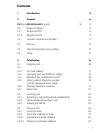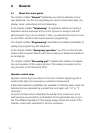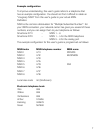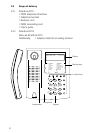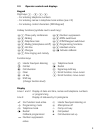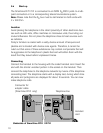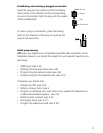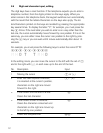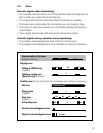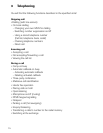
2 General
2.1 About this user's guide:
The chapter entitled "General" familiarises you with the features of your
new telephone. You find out everything you need to know about keys, the
display, tones, connections and commissioning.
In the chapter entitled
"Telephoning", all operations before and during a
telephone call are described and you find out how to accept a call and
what happens if you do not accept it. Here, you will also find notes on how
to use further functions that require previous programming.
The chapter entitled
"Programming" describes the available possibilities of
setting and programming the telephone.
In the chapter entitled
"Emergency operation", you find out how the tele-
phone reacts to power failures and how to make your telephone operate in
an emergency.
The chapter entitled
"The analog port" contains both details of configura-
tion and operation of the analog terminal. This analog connection port is
only provided on the SmartLine D721.
Operator control steps
Operator control steps are shown in the form of tables. Beginning with a
certain initial state, the sequence is numbered consecutively.
If alternative selection possibilities are available in individual steps, these are
indented and are preceded by a dotted line, and begin with "or" or "if
necessary".
In words, the text column describes the activity to be carried out, and a
swift overview is provided by an illustration of the appropriate key or sym-
bol. The affiliated illustration of the display always shows the result of the
operator control step described in the line concerned.
6




